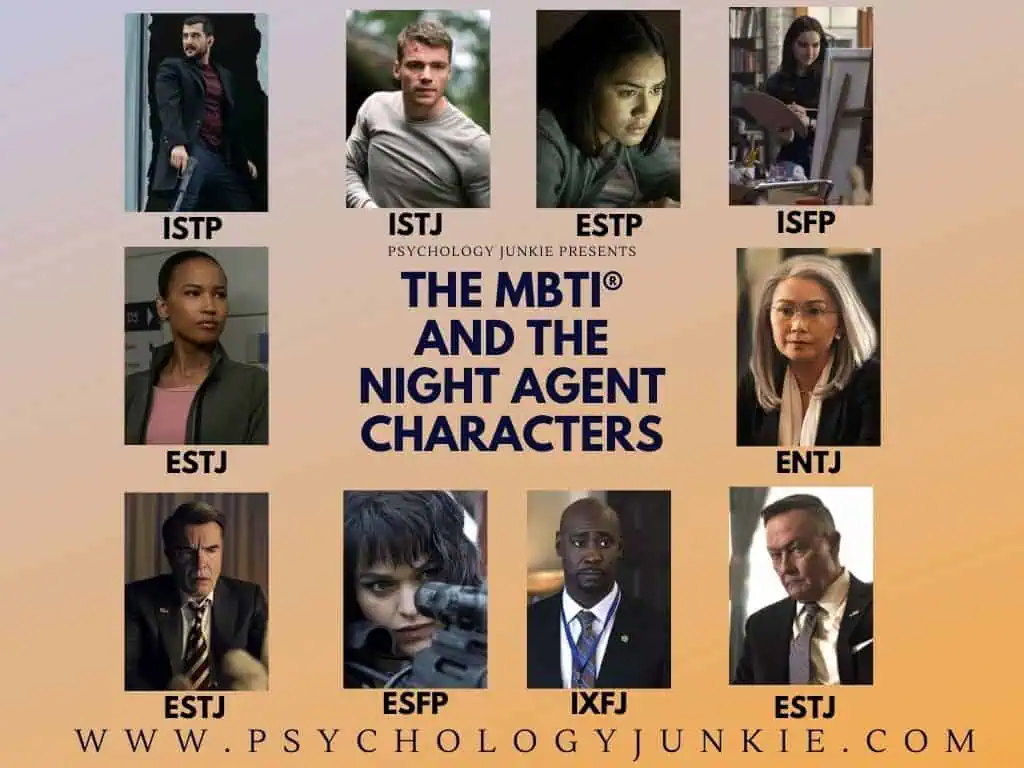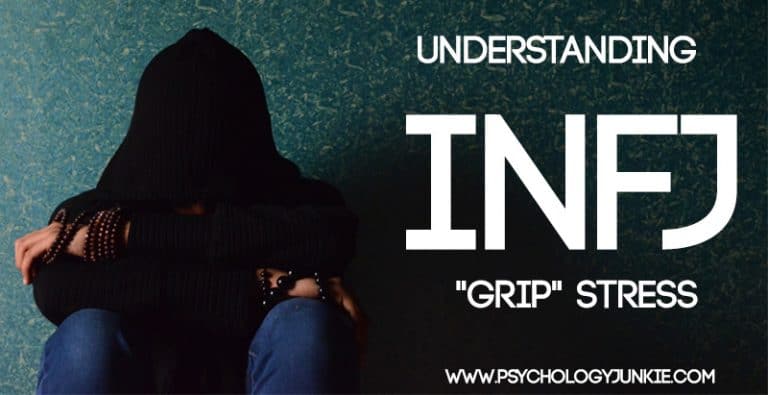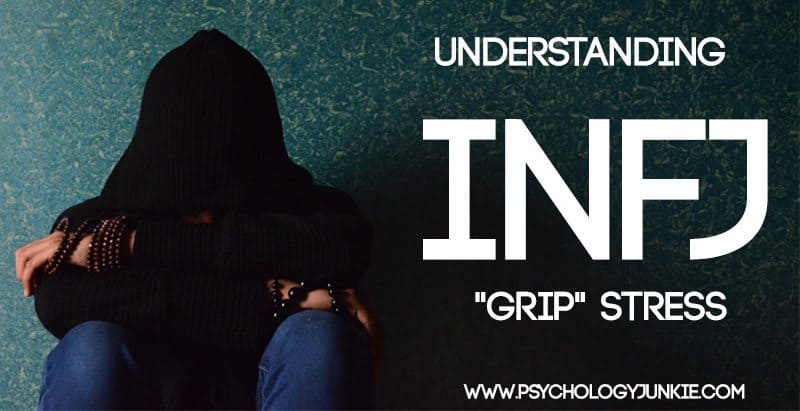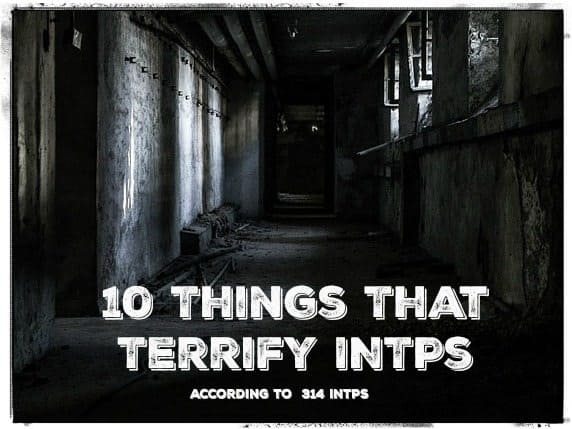The Myers-Briggs® Personality Types of The Night Agent Characters
The Night Agent is the kind of show that grabs you by the collar and doesn’t let go. Packed with conspiracies, assassins, and enough moral dilemmas to make your head spin, this Netflix action thriller quickly became a breakout hit after its March 2023 premiere. I’ve just finished watching Season 1 with my husband, and am anxiously awaiting Season 2 now. If you’re also excited about the upcoming season, join me as we dissect the character’s personality types as viewed through the Myers-Briggs system of personality.
Based on the novel by Matthew Quirk, the series stars Gabriel Basso as Peter Sutherland, an FBI agent trying to untangle a government mole’s deadly web while protecting Rose Larkin, a brilliant but beleaguered tech entrepreneur. With its second season hitting Netflix on January 23, 2025, fans are bracing for another heart-pounding ride.

Not sure what your personality type is? Take our personality questionnaire here. Or you can take the official MBTI® here.
The Myers-Briggs® Personality Types of The Night Agent Characters
Peter Sutherland (ISTJ – The Detective)
Peter Sutherland is the steady anchor in a sea of chaos. He’s also an amazing example of an ISTJ at their best. Like most ISTJs, he’s steady, principled, and driven by his sense of responsibility. Here’s what makes him tick:
- Principled and Ethical: Peter doesn’t cut corners. He’s the guy who will follow the rules—unless breaking them is the only way to save someone he’s sworn to protect. Even then, you can bet he’ll agonize over it.
- Courageous and Determined: Whether diffusing a bomb on a train or facing off against corrupt government officials, Peter’s bravery is unmatched. When he commits, he’s all in.
- Loyal to a Fault: Peter’s loyalty extends to people he’s just met (looking at you, Rose) and those who’ve earned his trust. Betray him, though, and you’ll see his darker, colder side.
- Empathetic Yet Guarded: Despite his stoic exterior, Peter has a deep well of empathy. He comforts Rose through her trauma while quietly grappling with his own scars, including the shadow of his father’s betrayal.
- Resourceful and Detail-Oriented: Whether tracking enemies, spotting a bomb, or deciphering encrypted files, Peter’s sharp, methodical mind is always one step ahead.
I’ve heard arguments for Peter being an ISFJ, and I definitely considered that. But here’s the thing about ISFJs: They exude warmth and have a gentle, empathetic countenance that can’t be denied. They smile readily, express their feelings, and care for others by creating space for emotional expression and connection.
Of course type isn’t all about behavior and there are more reserved, stoic ISFJs and more expressive ISTJs, but overall I see Peter using the cognitive functions of an ISTJ.
Peter is someone who internally processes his feelings while wearing a stoic, cooler exterior (a sign of Introverted Feeling, the tertiary function of ISTJs). He shows his values and his concern through actions; through doing. This is the ISTJ way; they show they care through their auxiliary function, Extraverted Thinking. While they feel things deeply they tend to look stoic on the outside, proving their love through pragmatic action.
ISFJs tend to be more responsive emotionally than Peter Sutherland shows. He’s always ready, always focused on the next task, and while he is guided by his convictions (proving his dad’s innocence, saving Rose) he has almost no facial responsiveness to the issues he’s dealing with. His feelings are definitely internal, private, and individual to him. A Feeling-Judging type tends to have feelings that play across their face in real time, and a warm, responsive, expressive style. Peter is about tasks, logistics, and pragmatism (Extraverted Thinking). He’s also driven by an inner, individual sense of feeling (Introverted Feeling) more than the Extraverted Feeling that ISFJs emulate.
You might also enjoy: The Personality Types of the Sherlock Characters
Rose Larkin (ESTP – The Daredevil)
If Peter is the calm in the storm, Rose is the spark that ignites the action. This ESTP tech whiz doesn’t just roll with the punches—she throws a few herself. My ESTP huband said, “I think she’s an ESTP, but I also feel like that sounds arrogant because she’s unrealistically good at literally everything.”
Let’s break down Rose’s ESTP traits:
- Quick on Her Feet: When assassins come knocking, Rose doesn’t freeze—she bolts. From hacking systems to evading hitmen, she stays cool under pressure.
- Resourceful and Tactical: Rose doesn’t just survive; she adapts. Whether she’s piecing together her aunt and uncle’s cryptic warnings or using tech skills to outmaneuver enemies, she’s always thinking a step ahead.
- Witty and Bold: Rose has a sharp tongue and a knack for cutting through tension with humor, even in the face of danger.
- Impulsive Yet Strategic: Rose takes risks, often with little time to weigh options, but she usually lands on her feet thanks to her sharp instincts.
- Emotionally Resilient (Mostly): Beneath her bravado, Rose is grieving her losses and grappling with betrayal. Her ability to keep going, even when shaken, speaks to her inner strength.
I love that Rose gives us such a good example of the female ESTP at their best. She has the responsiveness and practicality of Extraverted Sensing, the technical know-how and curiosity of Introverted Thinking, and the warmth and charm of Extraverted Feeling (these are the top three of the ESTP’s cognitive functions).
Rose’s arc is about reclaiming agency. She starts as a victim of circumstance but evolves into a force to be reckoned with, thanks to her courage and quick thinking.
You might also enjoy: The Personality Types of the Game of Thrones Characters
Ellen (ESFP – The Champion)
Ellen is chaos personified—an unhealthy ESFP who thrives on thrills, risk, and recklessness. Her impulsive nature, paired with her tactical skill and high-stakes lifestyle, makes her a formidable adversary.
I generally love ESFPs (my closest friends right now are ESFPs), but Ellen drove me crazy. She gave into her own feelings without concern for anyone else. And she was so uncomfortably passionate and reckless in a way that made me (an INTJ) weirdly uncomfortable. But enough about me. Here’s what defines Ellen’s personality:
- Risk-Taking and Impulsive: Ellen lives on the edge, making split-second decisions that often put her and others in danger. She doesn’t hesitate to act, whether it’s posing as a nostalgic homeowner or pulling a weapon on an adversary.
- Emotionally Charged: Passionate and volatile, Ellen’s emotions drive her actions. She loves fiercely, fights brutally, and lashes out when things don’t go her way.
- Thrill-Seeking: Ellen’s “shoot first, think later” approach is unhealthy Extraverted Sensing at work. Ellen constantly chases excitement, even at the expense of logic or morality. Her actions are driven by her desire for the next adrenaline rush.
- Corrupted Values: Ellen’s Introverted Feeling is deeply warped, making her entirely self-serving. She does what she wants when she wants, with little regard for the consequences to others.
- Quick and Tactical: Despite her recklessness, Ellen is tactically adept. She adapts quickly to her environment, whether it’s staging a robbery or escaping after a failed mission.
Now don’t get me wrong, Ellen is definitely an imbalanced ESFP. Most ESFPs ARE NOT like this character. We don’t know much about her backstory or what made her this way; but I’d guess she didn’t necessarily have the healthiest upbringing. Ellen’s unhealthy ESFP traits make her unpredictable and dangerous, a stark contrast to more balanced ESFPs who are enthusiastic and compassionate. She’s all passion and no restraint, which adds to her deadly allure as a character.
Erik Monks (ISFJ/INFJ – The Mystic or The Protector)
I know this will disappoint some readers, but I really couldn’t narrow down Erik Monk’s personality type past INFJ or ISFJ. The series focuses so much on high-stakes situations that we really don’t see what he’s like on his own time or what his inner world really looks like when life is peaceful. What we can see is that Erik is calm, grounded, wise, and insightful.
Whether he leans toward the ISFJ’s steadfast practicality or the INFJ’s visionary insight, his actions consistently reveal his commitment to protecting others.
Let’s unpack his traits:
- Insightful and Perceptive: Erik has a knack for reading situations and people, often anticipating problems before they fully surface. This could be the ISFJ’s practical observational skills or the INFJ’s intuitive foresight.
- Empathetic Protector: Erik’s deep compassion drives him to shield others from harm, whether it’s Maddie, Chelsea, or his fellow agents. His ability to connect with people emotionally makes him a steadying force in the chaos.
- Calm Under Pressure: In the heat of a crisis, Erik maintains his composure. His level-headedness is invaluable, allowing him to act decisively when it matters most.
- Moral Conviction: Erik’s strong sense of duty and ethics drives everything he does. Whether taking a bullet for the President or pushing through personal pain to protect Maddie, his actions reflect his unshakable principles.
- Mentoring and Supportive: Erik’s life experience and natural care for others come through loud and clear in his interactions with Chelsea, even when she initially resists his guidance. He cares about people, cares about supporting his partner, and being there not just in a practical sense, but in an emotional sense.
Dale (ISTP – The Vigilante)
Dale is all about getting the job done in the most practical, competent way possible. He’s cool under pressure and often acts as the calm to Ellen’s storm. Like most ISTPs, he always seems to have a handle on the situation; a ready, chilled-out, competent approach to any crisis.
Here are a few ISTP qualities that I noticed about Dale:
- Cool and Collected: Dale remains calm and composed in nearly every situation, from carrying out assassinations to managing Ellen’s fiery outbursts. He processes situations logically, rarely letting emotions cloud his judgment.
- Tactical and Resourceful: Whether hunting down targets or staging escapes, Dale analyzes the situation quickly and acts with precision. His ability to think on his feet is unmatched. This is in large part thanks to his Introverted Thinking and Extraverted Sensing (the ISTPs top two cognitive functions). Introverted Thinking works to rationally analyze situations down to their components, piecing together clues and leverage points. Extraverted Sensing keeps someone highly attuned to their surroundings, able to act quickly and responsively in a crisis.
- Detached but Caring: While Dale appears emotionally reserved, his quiet warmth for Ellen shows through in small moments. He’s often the stabilizing force in their volatile relationship, balancing her impulsivity with his grounded demeanor.
- Moral Ambiguity: As an unhealthy ISTP, Dale’s feeling side is underdeveloped, leading to a skewed sense of morality. He operates on a personal code that prioritizes efficiency and loyalty over traditional ethics.
Diane Farr (ENTJ – The Commander)
Diane Farr is a great example of both the strengths and weaknesses of the ENTJ personality type. She exudes the confidence and strategic brilliance of the ENTJ, but also some of the moral ambiguity that unhealthy ENTJs can get bogged down in. As the White House Chief of Staff, she’s a force to be reckoned with—organizing, delegating, and manipulating as needed to achieve her goals.
Here are some qualities that make Diane stand out as an ENTJ:
- Strategic and Goal-Oriented: Diane approaches every challenge with a clear plan. Whether mentoring Peter or managing White House crises, she sees the bigger picture and takes decisive action to achieve her objectives. When she asks for a moment to pull herself together, it’s literally a moment. She doesn’t need a lot of time to formulate a plan; the answers are right there in her mind.
- Commanding Presence: Diane’s leadership has helped her gain influence, power, and control. She’s always managing situations and people, weighing risks and rewards without second-guessing her decisions.
- Pragmatic and Results-Focused: Diane believes the ends justify the means. While she operates within a moral framework, she’s willing to make sacrifices—including human lives—if it serves the “greater good.”
- Charismatic and Persuasive: Diane knows how to win people over, whether through mentorship or subtle manipulation. Her ability to inspire loyalty (or fear) is one of her greatest assets.
- Morally Complex: Diane is an unhealthy ENTJ, and as such, her decisions often blur the line between right and wrong. While she believes in serving the greater good, her actions are heavily influenced by her personal ambitions and loyalties.
Diane’s ENTJ personality makes her a powerful leader and strategist. However, her willingness to bend the rules—and people—raises questions about her true motivations. She’s both admirable and dangerous, a character who commands respect and caution in equal measure.
You might also enjoy: The Myers-Briggs® Personality Types of the Black Doves Characters
Maddie Redfield (ISFP – The Virtuoso)
Maddie Redfield is sensitive, creative, and deeply driven by her inner values. In the face of adversity, she still follows her heart, even if it means she could die as a result. Her situation was really tough; and so many times I found myself shaking my head at how badly she was treated by her father and just…life.
Maddie has to deal with an absolutely toxic family situation, little to no privacy, and the normal chaos of trying to figure yourself out in college. Her heart leads her actions, and while she may struggle with conflict, she’s capable of quick thinking and remarkable courage when the stakes are high.
Here’s how Maddie’s ISFP traits come through:
- Driven by Personal Values: Maddie’s actions are guided by her inner moral compass, even when it conflicts with the expectations placed on her by others—particularly her father, Vice President Ashley Redfield. Her art and her studies reflect her deeply personal worldview, as she tries to express her feelings and beliefs in ways that feel authentic to her.
- Deeply Emotional: Maddie feels everything intensely. From her resentment toward her father to her moments of joy and vulnerability, her emotions drive her character.
- Courageous Under Pressure: Despite her struggles with self-confidence, Maddie shows her quick thinking and bravery when it matters most. Whether sending a secret code to her handler while being held captive or planning an escape, she demonstrates the ISFP’s resourcefulness and ability to rise to the occasion.
- Rebellious Yet Empathetic: Maddie’s rebellion against her father isn’t just about defiance; it’s about carving out her own space in a life overshadowed by expectations and blame. Yet even as she pushes back, she still cares deeply about the other people in her life and does what she can to protect them.
- Creative and Expressive: Maddie’s love for art and her studies in Political Science and Art reveal her desire to connect with the world through creativity.
As an ISFP, Maddie is deeply attuned to her own emotions and values, but her struggles with confidence and the weight of her family’s expectations create pretty intense challenges. Her ability to think quickly in a crisis and her heartfelt dedication to what she believes in make her a character to root for, even in her most conflicted moments.
Chelsea Arrington (ESTJ – The Captain)
ESTJs are amazing at being in charge, following the rules, enforcing the rules, and managing responsibilities. Chelsea succeeds at all of these things. While she might seem like a stickler for rules at the beginning of the series, she winds up being one of the most interesting characters towards the end. She’s competent, driven, and also caring; a side of the ESTJs that isn’t often talked about in the typology world. Healthy ESTJs balance their grounded, hard-working nature with a devotion to the people and values they hold dear. Chelsea is an amazing example of that, and I’m excited to see where Season 2 will take her (I really hope she shows up!).
Here’s what makes Chelsea a standout ESTJ:
- Rule-Follower and Organizer: Chelsea believes in structure and order, which makes her an excellent leader. Whether managing a security detail or navigating the high-stakes world of Secret Service operations, she’s all about following protocols and making sure that her team does the same.
- Pragmatic and Grounded: Chelsea is direct and clear-headed, even when her emotions are running high and everything feels wrong. She’s going to get her job done efficiently and if she messes up, she’s going to look for any flaws in her plan. Sometimes her decisions seem harsh, like when she removed Erik Monks from Maddie’s detail. But it’s all about doing the responsible, sensible thing for her.
- Protective and Responsible: Despite her tough exterior, Chelsea takes her responsibilities seriously and genuinely cares about the people she’s tasked with protecting. Her bond with Maddie gives us a look at her softer side (yes, ESTJs do have a softer side).
- Assertive and Confident: Chelsea isn’t afraid to stand her ground, whether it’s questioning Erik’s methods or pushing back against challenges in her career. Her confidence and assertiveness make her a natural leader, though they can also lead to clashes with others.
- Driven by Duty: Like many ESTJs, Chelsea is driven by a sense of what she “should” do. Responsibility is everything to her, and if she fails she will never let herself live it down. She approaches her job with a level of seriousness and precision that garners Monk’s respect. She knows what she wants, what she stands for, and the best way to go after her goals.
As a character, Chelsea is a fierce protector who keeps her emotions in check but shows her care through action. I love that she gives us a look at the nuanced, heroic ESTJ rather than the villainous ESTJs that are often in movies or TV shows.
Speaking of which…
Jamie Hawkins (ESTJ – The Captain)
Jamie Hawkins is the kind of stereotypical bossy, blunt ESTJ we’re used to seeing in movies (particularly political dramas). He’s driven, authoritative, and all about results. As the Deputy Director of the FBI, Hawkins thrives on structure and control, often clashing with others when their approaches don’t align with his own. His no-nonsense attitude and direct, sometimes abrasive communication style make him a commanding presence, though not always an empathetic one.
Some signs that Jamie is an ESTJ:
- Goal-Oriented and Hard-Working: Jamie is laser-focused on achieving results, whether it’s uncovering the truth about the Campbells or keeping Peter Sutherland in check. He values efficiency and doesn’t tolerate inefficiency or incompetence.
- Authoritative and Assertive: Jamie doesn’t hesitate to assert his authority, often clashing with Peter and Diane Farr when he feels his control is being undermined. His assertiveness can come off as callous, but it’s rooted in his belief in doing what’s necessary to get the job done.
- Pragmatic and Blunt: Jamie doesn’t mince words. Whether grilling Rose for answers or pushing back against Diane’s decisions, he prioritizes clarity and results over diplomacy. This pragmatism helps him make tough decisions, though it can alienate those around him.
- Structured and Rule-Oriented: Jamie is all about order and protocol, which makes him uncomfortable when others—like Peter—work outside the lines. He’s skeptical of Night Action and Peter’s involvement, preferring a more traditional approach to solving problems.
- Resilient and Determined: Jamie’s dedication to his work is unshakable. He’s willing to push through challenges and confront others head-on if it means achieving his goals, even if his methods come across as abrasive.
While Jamie’s ESTJ traits make him a competent leader, they also highlight his weaknesses. His lack of empathy and rigid adherence to doing things by the book can cause friction with those who need to be flexible as situations change.
Ashley Redfield (ESTJ – The Captain)
Ashley Redfield, the Vice President of the United States, embodies both the strengths, but mostly the weaknesses of the ESTJ personality type. He is decisive, pragmatic, and power-driven, but his relentless pursuit of control and his toxic, even abusive behavior towards his daughter highlight the darker side of this personality.
Here’s what makes Ashley an unhealthy ESTJ:
- Commanding and Decisive: As Vice President, Ashley seeks out a position of authority. He is quick to make decisions and expects others to follow his lead without question, whether it’s in politics or his personal life. This is an example of Extraverted Thinking pushed to an extreme.
- Results-Oriented and Ambitious: Ashley’s focus on achievement drives his political career, but it also strains his relationships. His ambition often overshadows his ability to connect emotionally, particularly with his daughter, Maddie.
- Rigid and Controlling: Ashley’s need for control manifests in his strained relationship with Maddie. He forces her to “get in line” and uses physical threat and intimidation to control her. His unwillingness to address the emotional nuances of their shared past—especially the loss of Maddie’s sister—leaves their relationship cold and transactional.
- Blunt and Unyielding: Ashley doesn’t shy away from confrontation, whether it’s addressing Maddie’s rebellion or handling political crises. His directness can be alienating, as he struggles to balance authority with empathy.
- Moral Corruption. As an unhealthy ESTJ, Ashley is willing to overlook a multitude of sins to gain his ultimate objective. If this means putting his daughter in harms way or destroying the lives of innocent civilians, he doesn’t seem nearly as bothered as he should be. He’s out of touch with his values and morals for the sake of his own power.
Ashley’s unhealthy ESTJ traits make him a formidable figure in the political arena, but they also highlight what an ESTJ can look like at their very (VERY) worst. As a leader, Ashley shows us the driven, results-oriented ESTJ; as a father, he reveals the dark side of using people as pawns over seeing them as individuals with real needs and important emotions.
What Do You Think?
Do you agree with how I profiled the characters from The Night Agent? Do you have any alternative perspectives or opinions? I’d love to hear them! And which character do you resonate with the most? Leave all your thoughts in the comments to continue the conversation!
Subscribe to Our Newsletter

Want to discover more about personality type? Get the inside scoop with Susan Storm on all things typological, along with special subscriber freebies, and discounts on new eBooks and courses! Join our newsletter today!





















